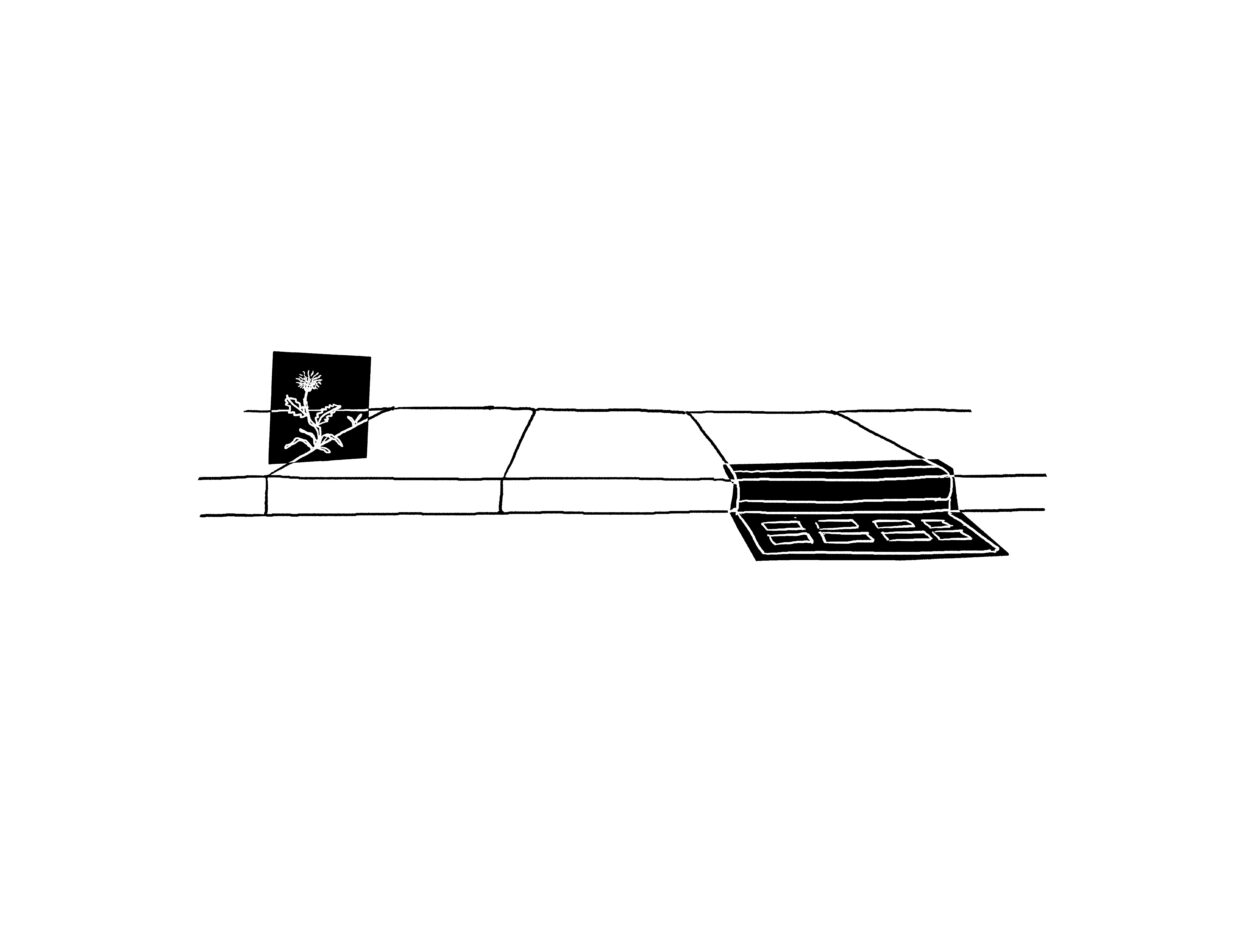
Image by Ivy Sanders Schneider

Image by Ivy Sanders Schneider
I’m no maestra of the avant-garde, and consequently, my interest here is in offering neither definitions nor death knells. To mourn the loss of the avant-garde — or to seek the shock of transgressive aesthetics in increasingly arcane crannies — is an evergreen endeavor. As Roland Barthes wrote, “être d’avant-garde, c’est savoir ce qui est mort” (“to be avant-garde is to know that which has died”). And death, too, is in the egg, as Anne Sexton noted. Instead I’ll offer a more perilous and slantwise inquiry: how much longer will meaningful cultural production be possible at all?
Our interlocking — and I use this term with regret — industries gasp and gurgle, inert, in the quicksand of franchises and flops, reboots and sequels, and novels seemingly penned via form letter. In just six months, Bookforum shuttered; Astra shuttered; Vice, Buzzfeed, and Gawker had their checks cashed and bounced back; and all three major art print magazines — Artforum, Art in America, and ARTnews — discovered themselves beneath the boot of the same corporate daddy. Will A.I. art replace analog? Surely not, unless it wipes us out entirely, but it further furnishes the existential threat of a post-post-modernity, in which each art object either goes viral or is deemed a financial loss.
Robert Hughes argued that avant-gardism exists in a dialectical and inextinguishable relation to liberal bourgeois culture — that, in fact, the avant-garde was impossible before liberalism’s rise in the 1800s. The wonder, now, is if we’re entering a new, hitherto unimaginable epoch, if the threadbare death shroud of bourgeois civilization (and the art produced under its aegis) can outlast the annihilative conditions of precarious life that all but those at the very top are forced to endure. The rent, yes, is too damn high.
Nearly all the broke artists I loved or fucked or partied and collaborated with a decade ago have been priced out of New York, or they’ve been black-holed into waged labor that leaves little to no room for vibrant social or intimate lives, let alone for the making of art. I would have had to leave, too, but there was nowhere else for me to go. Instead, I starved and slept fitfully on friends’ couches, stashing cash by hooking for a couple of years, all while manically reupholstering my writing for a slightly more lucrative market, shifting from esoterica and fragments to criticism, which pays shit but pays just a little bit more than nothing. I no longer give much credence to arguments about selling out. I think they’re operative mostly in theory, because what they condemn is an inexorability to which there’s no longer any alternative.
The choice at hand for working-class artists seems to be: commodify the art you’re making, or don’t make any fucking art at all. Of course we craft loopholes: pulling all-nighters, committing “time-theft,” obliterating our vision (if you’re me) by reading books between rushes through the dimmed lights behind the bar. Art harbors a weed’s soul: it blooms in any gap that hasn’t been cemented over. But the glimmering apertures are vanishing. The cultural homogenization of New York City under AIDS that Sarah Schulman documented in The Gentrification of the Mind has become, by now, almost breathtakingly totalized, thanks in no small part to another global pandemic and the violent opportunism of the wealthiest and most morally bankrupt among us.
If the avant-garde is dead, it’s because every disturbance in which astonishment breathes is being sanded over for the parasitic Instagram class, for mouth-breathing tech dweebs, for startup sociopaths requisitioning urban space to remake it in their passionless image. These bland bloodsuckers delight in quieting any commotion; they spread panic about invented crime waves and demean the most vulnerable of our neighbors, who are involuntarily institutionalized and even murdered in full view of the public. In 1974, Amos Vogel argued that the disruptive potentialities of radical art were done for, because it had become functionally impossible to “shock the bourgeoisie, who now accept all insults with a benign smile, secure in the knowledge that their pockets are not being picked simultaneously.” Should we lie back as each spark of beauty is seized by people who wish to disclude all but themselves from a livable life? Must we accept any crumb with simpering gratitude? What use is art if it only comes in beige, eggshell, and taupe? Can we fix our world before it becomes unworthy of or uninhabitable for art? I wonder.
Jamie Hood is the author of Trauma Plot: A Life, the hybrid pandemic diary how to be a good girl, and “regards, marcel,” a monthly newsletter on Proust and other miscellany. She lives in Brooklyn.